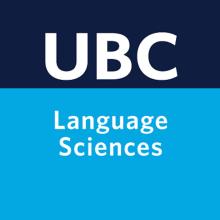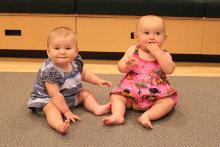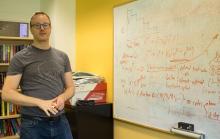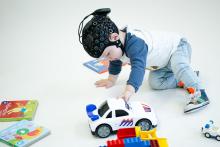News
-
 September 26, 2019
September 26, 2019Language Sciences’ statement on the climate strike
On Friday 27th September, a global climate strike will be held to highlight the climate crisis. UBC students have planned an event from 11am to 12pm at the AMS Student Nest. After the UBC event, there are plans for people on campus to travel by bus and bike convoys to Vancouver City Hall, where…
-
 August 30, 2019
August 30, 2019Language Sciences congratulates our award-winning members!
The Language Sciences Initiative would like to congratulate our members who have won a number of awards in recent months. Department of Psychology senior instructor Steven Barnes won a 3M National Teaching Fellow award. According to the sponsors, the Fellowship recognizes university and…
-

-
 June 27, 2019
June 27, 2019Learn about the history of B.C.’s Indigenous languages this month with the Xwi7xwa Library
June is National Indigenous History Month in Canada, and 2019 is the United Nations International Year of Indigenous Languages. British Columbia’s Indigenous languages make up more than 50% of the approximately 61 languages indigenous to Canada, according to the First Peoples’ Cultural…
-

-
 June 12, 2019
June 12, 2019Looking behind the ‘model minority mask’ to help educationally at-risk multilingual students
Image credit: Paul H. Joseph The stereotype of the high-achieving Chinese student in Canada, called the ‘model minority’, can mask differences in learning within this community, and a lack of research in this area means educationally at-risk students are being overlooked. That is…
-
 May 28, 2019
May 28, 2019No, it’s not Skynet: you’ve (probably) encountered machine learning today
Machines that can learn have long been the stuff of science fiction, and questions about the possibility of killer robots come up often enough that Language Sciences member Mark Schmidt has a slide answering this in one of his presentations. As Canada Research Chair in Large-Scale Machine…
-

-
 May 1, 2019
May 1, 2019Helping at-risk children develop their cognitive skills can aid success in life - and language plays a role
Cognitive skills such as learning, planning, and problem solving, are critical for success in life, from making friends and getting good grades in school to having a career or becoming a parent. These cognitive skills develop as the brain does, so working to improve them early can change the…
-
 April 15, 2019
April 15, 2019Understanding word learning in the growing brain
Toddler wearing the Brite fNIRS. Photo credit: Artinis Story by the Department of Psychology Dr. Maria Arredondo and Dr. Drew Weatherhead, postdoctoral researchers in the department of psychology at UBC and Language Sciences members, recently won the Artinis Win-A-Brite Contest…